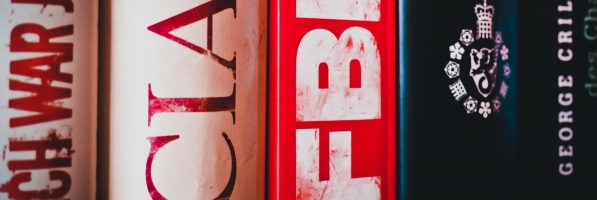Curbing the Conspiracy Mindset at Northwestern, and More – Chicago News

Let’s explore some of the most interesting stories that have emerged from Chicago business schools this week.
Conspiracy Theories Abound. Here’s How to Curb Their Allure – Kellogg Insight
Northwestern Kellogg Clinical Professor of Management and Organizations Cynthia Wang took a social psychological approach to understand what drives conspiratorial perceptions like Pizzagate, and “what are things that can be done by organizations that can prevent this mindset,” highlighted in a recent release from Kellogg Insight.
Wang co-authored a new paper with UCLA’s Jennifer Whitson, Penn State-Erie’s Joongseo Kim, Ohio State’s Tanya Menon, and Ball State’s Brian Webster, which finds that “individuals who exhibit a desire to take action in pursuit of their goals are less prone to conspiratorial thinking.”
The group began to focus on “regulatory focus theory (RFT), which looks at how people go about achieving their goals.” Kellogg Insight explains:
“RFT proposes two main strategies. People with a “promotion-focused” orientation aim to do everything in their power to achieve their hopes and dreams. In this mindset, individuals believe they can shape their future, suggesting that they feel a high degree of control over their environment. Those with a “prevention-focused” orientation, on the other hand, act diligently to protect the security they already have.
The researchers hypothesized that prevention-focused people might be more prone to believe conspiracy theories because conspiracies can feel like a threat to their security. The team suspected that people with a promotion focus, however, would be more skeptical.“
The team surveyed three groups of people, including military personnel and college students. Consistently, they found that people who were more “promotion” focused thought they had more agency in what happens to them, and therefore more control. In this frame of mind, those that felt they had more control were less susceptible to believe conspiracy theories.
You can read more about the group’s research here.
Yuxuan Tang is Ready for His 48 Hours of Fame – Gies School of Business Blog
Gies College of Business senior Yuxuan Tang was one of four University of Illinois students drawn from the Illinois MakerLab and selected to compete in Season 3 of the PBS show Make 48, a “televised national invention competition that gives teams 48 hours to come up with an idea, create a prototype, and present their idea to a panel of judges.”
Tang writes, “It’s an honor. The competition is like a sped-up creation process. Being able to make the model is important, but the rest of the team should diversify. You need some people to see ‘How’s the market? What do customers think of this service?’ That’s what business people do.”
You can read more about Tang’s work here.
Graduate Students Tackle Issue of Clean Water in Haiti – Quinlan School of Business Blog
Loyola’s Masters of Social Justice student Josh Goralski spoke with the Quinlan School of Business Blog about his social enterprise, which “focuses on building water filtration businesses [in Haiti] funded through micro-financing.”
This idea is an extension of a business idea he and his undergraduate classmates at Rockhurst University developed to address the 5,700 Haitians water-related diseases claim each year. According to the article, “52.4 percent of Haiti’s rural population does not have access to clean water.”

Loyola student Josh Goralski, pictured in Haiti / Photo via luc.edu
“Water filters would be sold by local community members. The sellers would be trained and certified to micro-finance the filters affordably for their community members.” According to the article, the ceramic water filter that the Haitian water enterprises sell can “provide clean water for a family of five for up to 10 years with little maintenance, and save families $400+ USD over 10 years.”
Goralski writes that his goal is to “empower communities. We wondered, how do we work with a local community partner, provide access to business education training, and empower these communities?”
You can can read more about Goralski’s work here.
California Job Growth, and More – Los Angeles News

We’ve rounded up some of the biggest news coming out of Los Angeles business schools this week.
California Gains 35,500 jobs, and Unemployment Falls to Record-Low 4.4% – Los Angeles Times
In a recent interview with the Los Angeles Times, Pepperdine University Graziadio School of Business and Management economist Dave Smith spoke about California’s remarkably positive streak of job growth, saying, “I don’t see how we can avoid decent wage growth, which is a positive thing for workers.”

“In Los Angeles County in January, employers added 7,200 jobs. In Orange County, payrolls rose by 4,300; in the Inland Empire they increased 2,000.” – Andrew Khouri, Los Angeles Times
You can read more about the story from the Los Angeles Times here.
Graduate Career Mentor Programs for Spring 2018 – CSULB Newsroom
The Graduate Career Mentor program for spring 2018 at the California State University, Long Beach College of Business and Administration kicked off on February 12th, continuing its work of connecting industry professionals with current CSULB graduate students. Currently, 20 graduate students in both the MS Supply Chain Management and Accelerated MBA program have mentors.
The program, which is overseen by assistant director of graduate business career services Michelle Levy, aims to pair current students with professionals to develop a strong mentor-mentee relationships. Not only will the mentor help students navigate through their business degree, but will also vastly expand their professional network, offering professional advice and helping discover new opportunities.
Click here for more information on the Graduate Career Mentor Program at CSULB, or to learn how to become a mentor yourself.
YouTube Will Add Information from Wikipedia to Videos About Conspiracies – The Verge
YouTube CEO and UCLA Anderson MBA alumni Susan Wojcicki has been dealt an unfortunate hand with her company; being forced to confront the rise of conspiracy theories.
Wojcicki spoke about the way YouTube is changing its methods at South by Southwest in Austin, saying, “When there are videos that are focused around something that’s a conspiracy—and we’re using a list of well-known internet conspiracies from Wikipedia—then we will show a companion unit of information from Wikipedia showing that here is information about the event.”
Buzzfeed technology reporter Ryan Mac recently discussed the issue in more detail on his Twitter feed, noting those utilizing the site to spread conspiracies tend to craft shady or out-right false information much faster than Wikipedia can counteract it.
.@SusanWojcicki “If there is an important news event we want to be delivering the right information.”
Minutes later she says, “We are not a news organization.”
— Ryan Mac (@RMac18) March 13, 2018
Find out more about Wojcicki and YouTube’s attempts to curb toxic conspiracies here.
